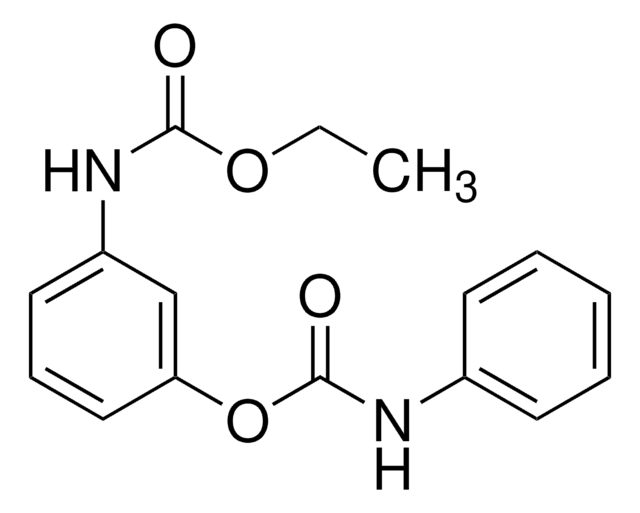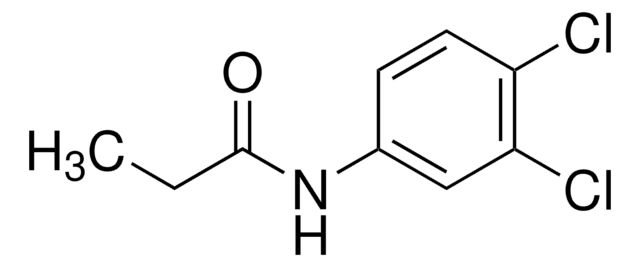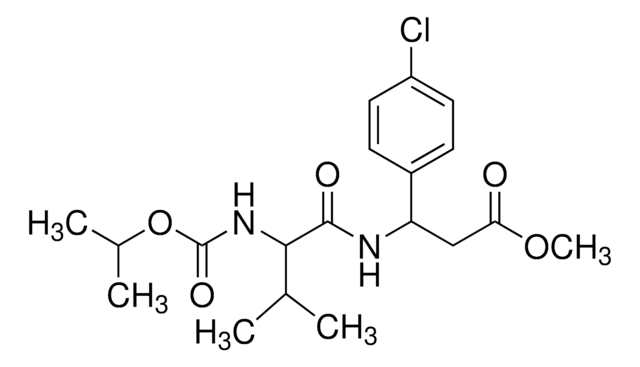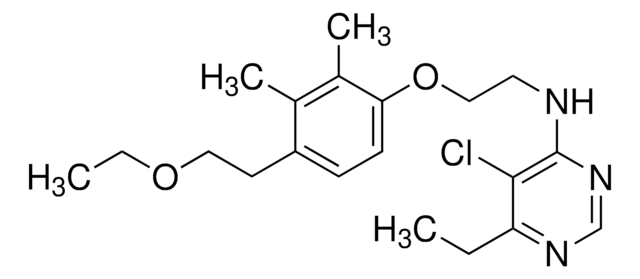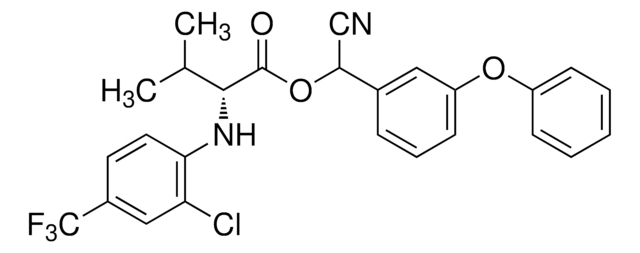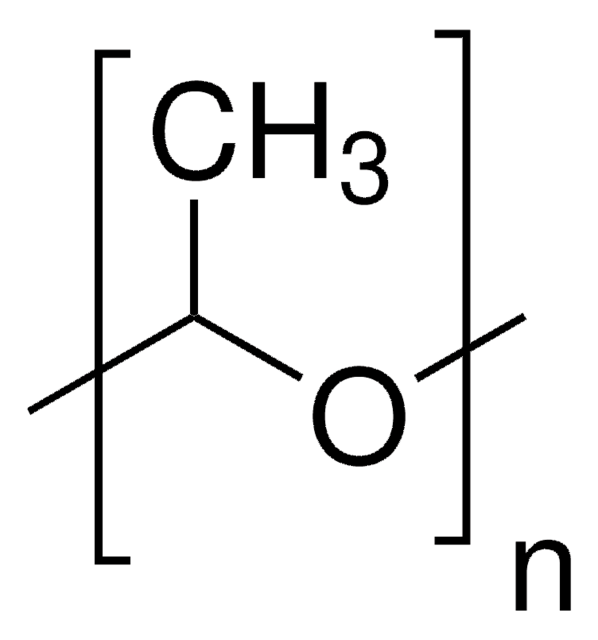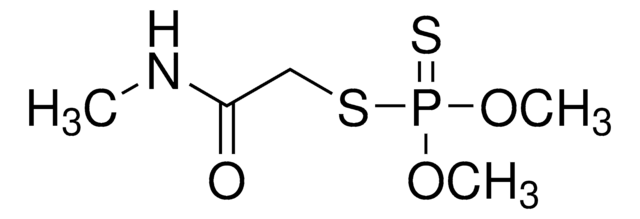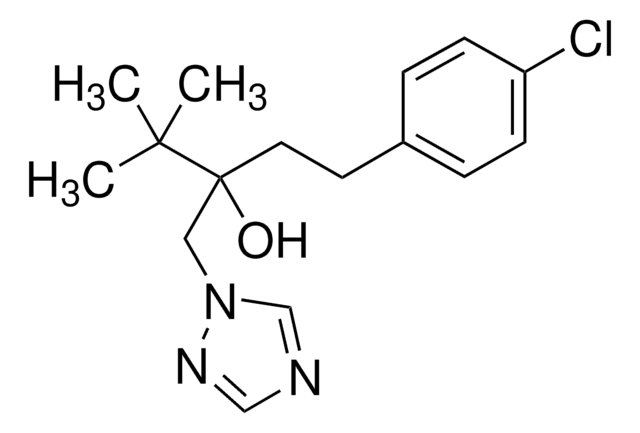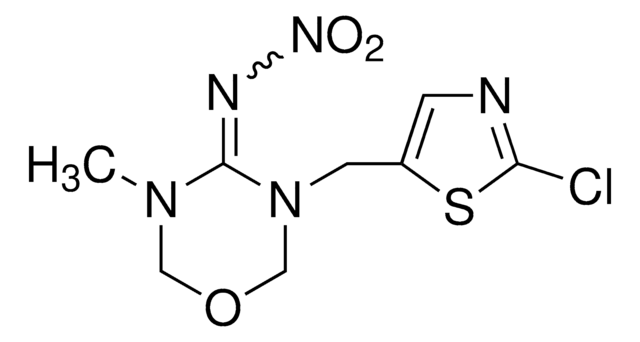36192
Phenmedipham
PESTANAL®, analytical standard
About This Item
Produits recommandés
Qualité
analytical standard
Niveau de qualité
Gamme de produits
PESTANAL®
Durée de conservation
limited shelf life, expiry date on the label
Technique(s)
HPLC: suitable
gas chromatography (GC): suitable
Application(s)
agriculture
environmental
Format
neat
Chaîne SMILES
COC(=O)Nc1cccc(OC(=O)Nc2cccc(C)c2)c1
InChI
1S/C16H16N2O4/c1-11-5-3-6-12(9-11)18-16(20)22-14-8-4-7-13(10-14)17-15(19)21-2/h3-10H,1-2H3,(H,17,19)(H,18,20)
Clé InChI
IDOWTHOLJBTAFI-UHFFFAOYSA-N
Vous recherchez des produits similaires ? Visite Guide de comparaison des produits
Catégories apparentées
Description générale
Application
Informations légales
Mention d'avertissement
Warning
Mentions de danger
Conseils de prudence
Classification des risques
Aquatic Acute 1 - Aquatic Chronic 1
Code de la classe de stockage
11 - Combustible Solids
Classe de danger pour l'eau (WGK)
WGK 2
Point d'éclair (°F)
212.0 °F - closed cup
Point d'éclair (°C)
100 °C - closed cup
Équipement de protection individuelle
Eyeshields, Faceshields, Gloves
Faites votre choix parmi les versions les plus récentes :
Déjà en possession de ce produit ?
Retrouvez la documentation relative aux produits que vous avez récemment achetés dans la Bibliothèque de documents.
Les clients ont également consulté
Notre équipe de scientifiques dispose d'une expérience dans tous les secteurs de la recherche, notamment en sciences de la vie, science des matériaux, synthèse chimique, chromatographie, analyse et dans de nombreux autres domaines..
Contacter notre Service technique